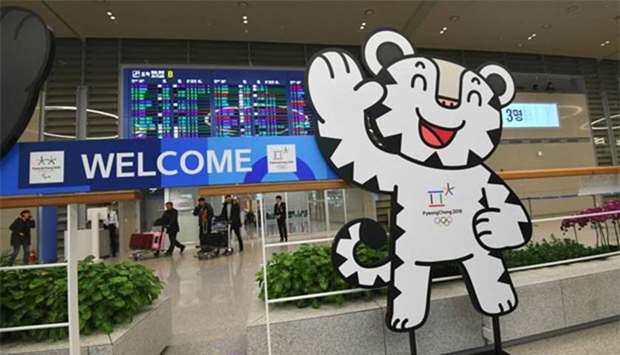South Korea's prime minister apologised on Friday for suggesting the country's women's ice hockey team had no chance of a medal at the Winter Olympics in an unsuccessful attempt to dampen criticism over a unified team with the North.
Seoul and Pyongyang agreed this week to field a unified side for the women's ice hockey tournament at the Games, which begin in Pyeongchang next month.It came after Pyongyang agreed to attend what organisers and Seoul have sought to proclaim a "peace Olympics", significantly easing tensions over the nuclear-armed North's weapons programmes.
But the proposal has sparked a backlash in the South, with critics saying that the move would disrupt the side and deprive some Southern squad members of their chance to play on the Olympic stage.
South Korea qualified for the tournament as hosts, rather than on merit, and Prime Minister Lee Nak-Yon said on Tuesday that the team was out of medal contention, with the South ranked 22nd in the world and the North 25th.
"I've heard our team's ultimate goal was to win just one or two games at the Olympics," he said then, adding: "Athletes are also in favour of bringing in a few good players from the North to enhance competence."
In the face of widespread public criticism, Lee sought to back down on Friday.
"I acknowledge that my remarks had room for misunderstanding," he said at an annual policy briefing by government cabinet ministers.
"I apologise to those who were hurt by the remarks," he added.
The women's ice hockey team is not the only element of the agreement that is controversial in the South.
The two Koreas agreed that their teams would enter the opening and closing ceremonies together behind a unification flag, but a Realmeter poll released on Thursday showed only 40.5% of South Koreans in favour.
A larger share -- 49.4% -- supported the two Koreas entering the ceremonies holding up their own national flags.
Seoul has suggested expanding the ice hockey team roster to accommodate North Korean players, but other countries are likely to see that as conferring an unfair advantage.
The International Olympic Committee, which has the ultimate say on Games matters, is set to finalise the arrangements in talks with both Koreas in Lausanne on Saturday.
The North's attendance at the Games will not end security threats on the Korean peninsula, Lee said, but added that it could lead to "an opportunity to help Pyeongchang's success lead to peace".

